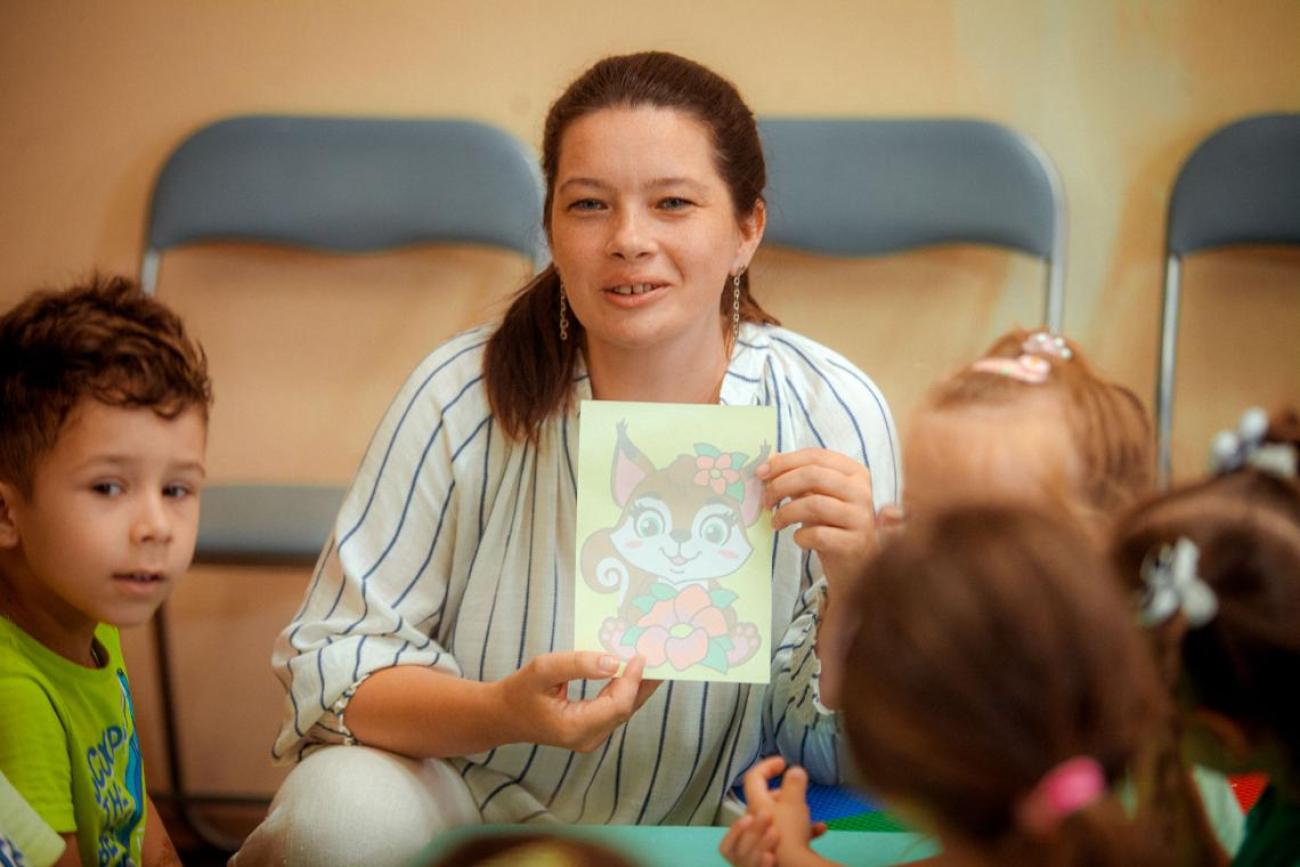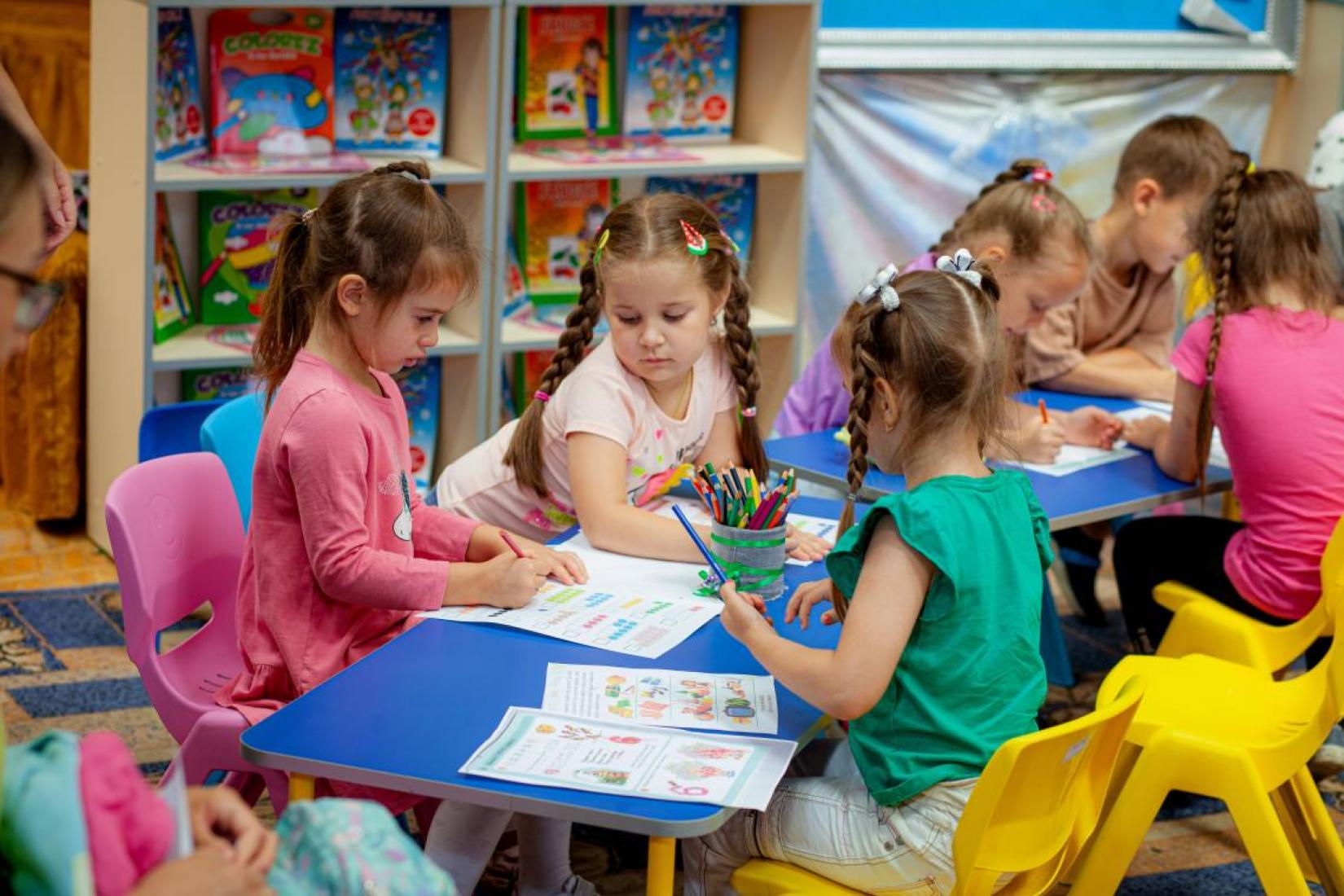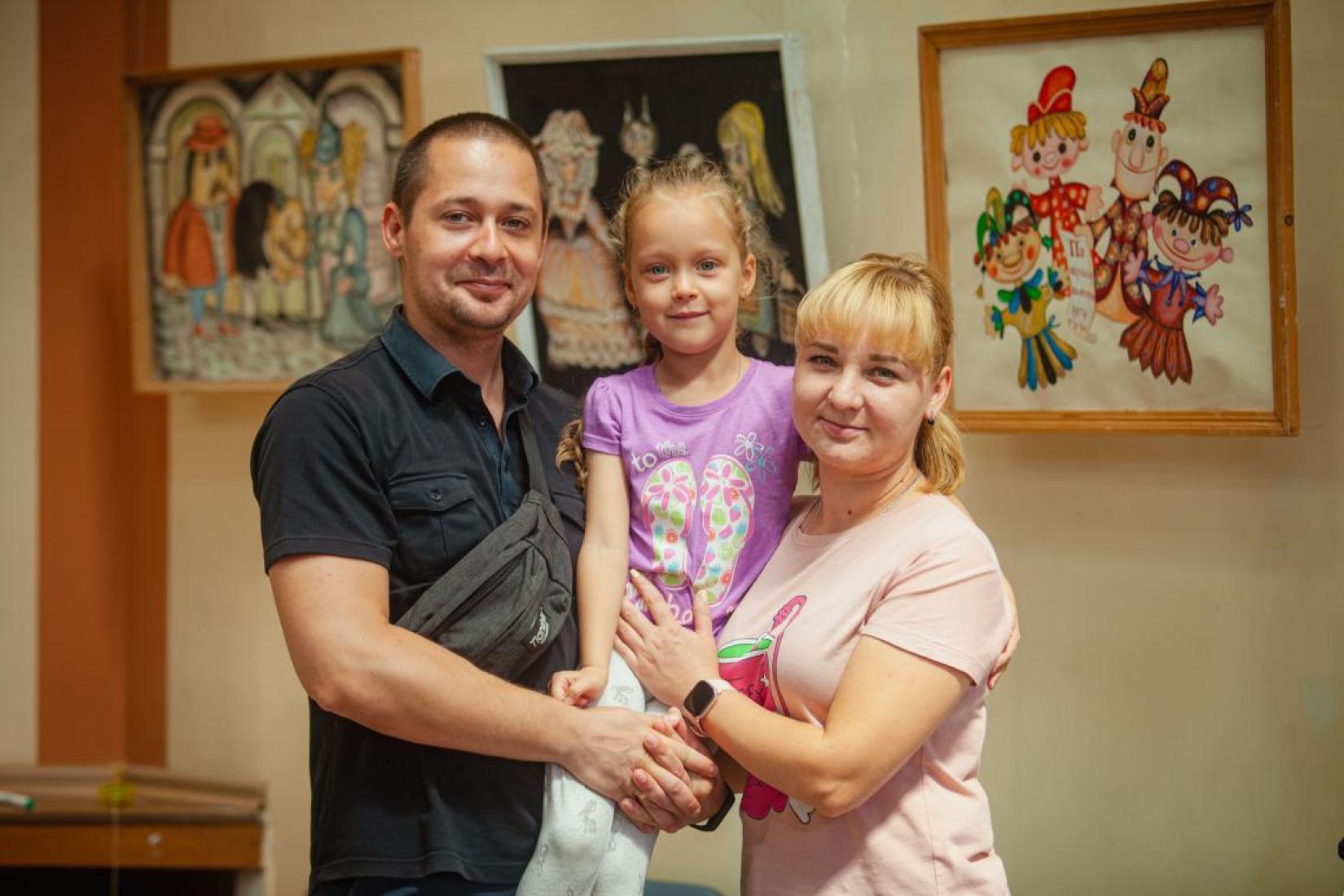"Children from Ukraine need support to continue learning"

Olena, a mother of four and teacher from Odesa, gives lessons to children from Ukraine and Moldova within a non-formal educational project developed by UNICEF.
Olena, a mother of four and teacher from Odesa, gives lessons to children from Ukraine and Moldova within a non-formal educational project developed by UNICEF and partners.
Taking care of four children, Olga (14 y.o.), Iaroslava (9 y.o.), Alisia (4 y.o.), and Grigore (10 mos.) was Olena's main concern before the war. Also, Olena dreamed of establishing a kindergarten or an educational center in Odesa. Then, on February 24, like many other Ukrainians, she and her husband were awoken by rocket attacks early in the morning. "My husband opened the window and said," Do you hear it? The war has begun."
My mind went blank; I didn't want to believe it. I wanted to take some time to explain to my children what was happening, but it wasn't necessary. The younger daughter started to run from one room to another: "Mom, look! There are bombs here, there are bombs. Let's play, but don't touch them! They are dangerous", remembers Olena while raising her eyes to the sky to stop tears from running down her cheeks.
To provide safety for the children, Olena packed a few things, convinced that her adventure as a refugee in Moldova would only last around two weeks.
"I asked the children to take what they wanted: like books and toys. In the first weeks, I lived like a robot. The children did not want to go for walks or make new friends. They were very scared", says the young mother.
After almost two months away from home, friends, and school, Olena understood that life must go on, even if the war changed everything. "I was afraid I wouldn't be able to breastfeed because of the stress. So, I decided that I have to calm down for my children health’s sake. Then, I started looking for educational activities for them, and that's how I found out about this project, supported by UNICEF".
For nearly 15 years, Olena taught English, mathematics, and other subjects to children in Ukraine. She says that she had a dream of becoming a teacher since the early years of her childhood, and she loves what she does with all her soul, even though her parents always told her that she had chosen a challenging career path. Today, she continues teaching at the "Licurici" Republican Puppet Theatre in Chisinau, where she organises developmental and educational activities for children from Ukraine and Moldova.
"These children have lost almost all connections with their life in Ukraine. By participating in these activities, they return to their childhood, to what once belonged to them. When I came here, I received hope, a warm touch. My older daughter started learning Romanian participating in the project. Also, she comes here and helps me with the activities. She is passionate about psychology, and it allows her to communicate with other children. The youngest daughter made a lot of friends. Thanks to this project, I recaptured her big smile as she became very serious in the last few months.

Indeed, children from Ukraine need to be supported by being involved in such projects where different activities are organised. For example, here we also have choreography. Likewise, I think they should continue studying English, Romanian, and even German," says Olena.
To help children, visibly affected by the conflict and sudden changes in their lives, Olena organises art therapy sessions, including sessions for parents. "Everyone has their story. For example, a little girl from Mykolaiv is very stressed because her friends stayed in Ukraine. Every day friends tell her what is happening in Ukraine. Sometimes she can be very active or extremely calm. But there are days when she doesn't want to do anything."
While Olena tries to teach the children some dance moves, Ana and Roman from Mariupol watch their six-year-old daughter, Polina, with excitement. "I was working abroad when the attacks started. Our house, our daughter's kindergarten, and also the school where she was going to start her studies - everything was destroyed. It isn't easy to adapt to a new reality. I am in Moldova for the first time. I didn't know anything about this country", says Roman.
All they want now is to ensure a harmonious development for their daughter. "We are trying to integrate her into various educational activities, especially, since she is very communicative. Polina made new friends and comes here with great pleasure. For instance, last week she got sick and asked us when she will come back here", says Roman.

"The oldest daughters finished their school year online, and I saw that teachers and children have big problems with internet access. Also, I know many kids don't have gadgets to continue their education online, and parents don't have money to buy them. However, these children must continue their education. Here, within the project, they gain basic knowledge and psychological support which helps them to continue the educational process received at home, in Ukraine. Likewise, I think it is vital to involve Ukrainian teachers in educational projects in other countries. In this way, we feel that we are not alone but together", says Olena.
As the children gather around her to say goodbye, at the other end of the hall, an older woman with a child in her arms impatiently awaits Olena. It is her mother and Olena’s son. The meeting between the two is magical.
"In addition to being a teacher, I am also a mother. It's the best thing I could do for him right now. Breastfeeding is our connection and our power. This project is a perfect opportunity for me because it allows me to feel fulfilled in all areas of life, to be a teacher, to work, and to be a good mother to my children", says Olena while holding her son to her chest.
Since the beginning of the war in Ukraine, UNICEF and the "Step by Step" educational programme, with the support of from the Government of Japan, have organised a series of non-formal educational activities on the premises of the "Licurici" Republican Puppet Theatre in Chisinau. As a result, more than 15,000 children between the ages of 3 and 17 participated in English, Romanian, math, art therapy, dance, and other classes. Moreover, about 1,600 teachers, including 22 from Ukraine, were trained to respond to the crisis. Likewise, within the project, ten teachers from Ukraine were officially hired to carry out educational activities.




